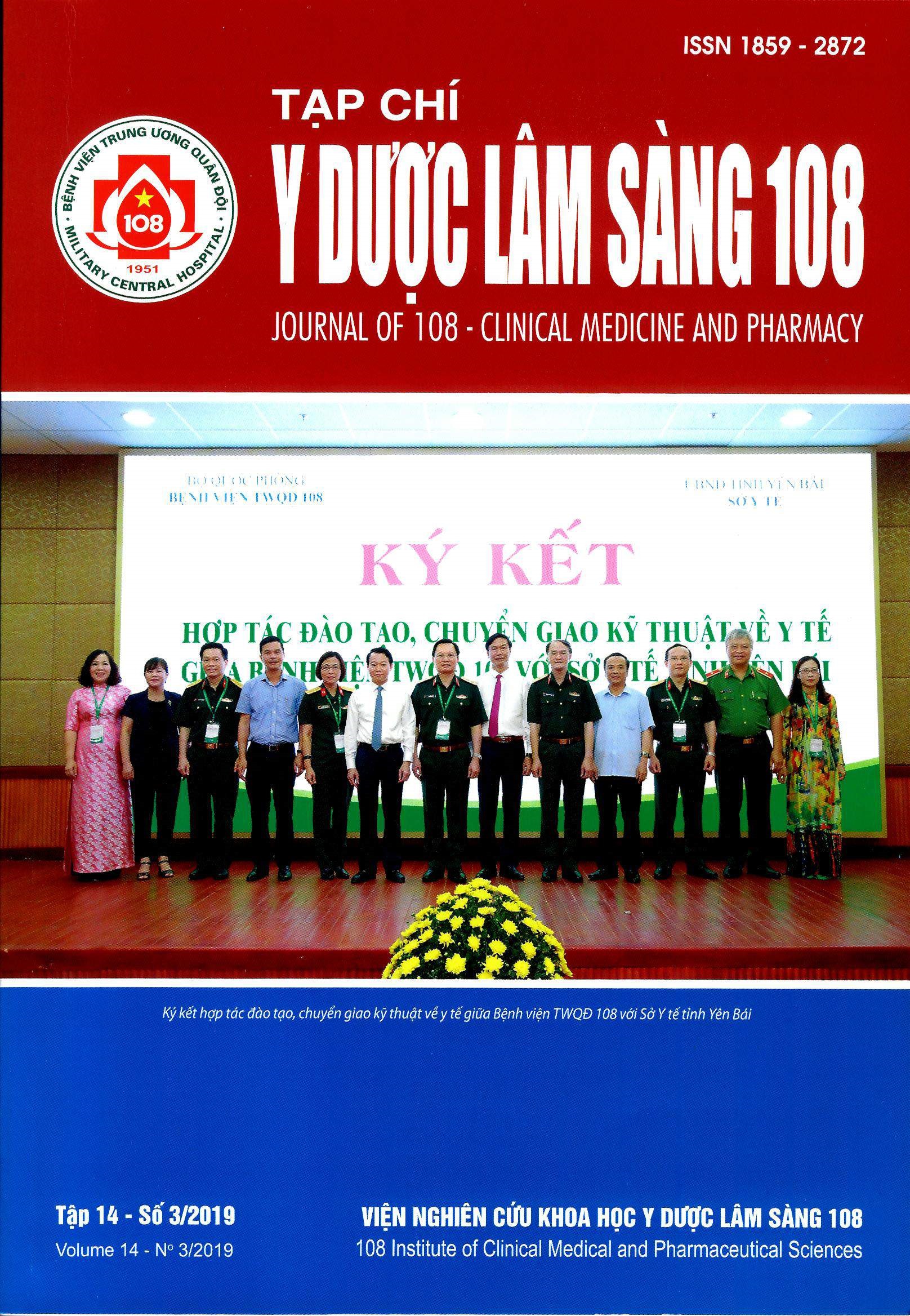Evaluating some related factors to attention disorders in idiopathic epilepsy in adults
Main Article Content
Keywords
Abstract
Objective: To evaluate some related factors to attention disorders in idiopathic epilepsy in adults. Subject and method: 200 patients were diagnosed with idiopathic seizures based on clinical and cranial magnetic resonance imaging. The patients were tested on the American Psychiatric Association's attention test. Result: Attention disorder in simple local epilepsy decreased with the lowest rate among other epilepsy types with statistical significance (with p<0.05). The onset of < 6 year-old group was 6.27 times higher than that of group 6 - 17 (with OR = 6.27, 95% CI: 2.04 ÷ 19.6, p=0.0002) and 91.5 times higher than the group of 18 and older (p=0.000). The onset of 6 - 17 group had a risk of 14.5 times higher than the onset group of 18 or more (p=0.000). Attention disorder in the group with a duration of more than 5 years was 2.65 higher times compared with the group with 1 - 5 years of disease (p=0.0215) and 3.08 times higher than the group with duration of less than 1 year (p=0.0089). Anti-epileptic drugs had no effect on attention disorders. Conclusion: Attention disorder is less common in simple local epilepsy. The lower the age of onset (< 6 years) and the longer the duration of epilepsy, the highest the attention disorder. Anti-epileptic drugs do not affect attention disorders.
Keywords: Epilepsy, attention disorders.
Article Details
References
1. Rausch R, Kraemer S, Pietras CJ et al (2003) Early and late cognitive changes following temporal lobe surgery for epilepsy. Neurology 60: 951-959.
2. Helmstaedter C (2007) Cognitive outcome of epileptic in adults. Epilepsia 48(8): 85-90.
3. Jokeit H, Ebner A (2002) Effects of chronic epilepsy on intellectual functions. Prog Brain Res 135: 455-463.
4. Meador KJ, Loring DW, Huh K et al (2011) Comparative cognitive effects of anticonvulsants. Neurology 40: 391-394.
5. Shehata GA, Bateh AEM (2009) Cognitive function, mood, behavioral aspects, and personality traits of adult males with idiopathic epilepsy. Epilepsy & Behavior 14: 121-124.
6. Aldenkamp AP, Arends J (2004) Effects of epileptiform EEG discharges on cognitive function: Is the concept of ‘‘transient cognitive impairment ’’still valid”. Epilepsy Behav 5(1): 25-34.
7. Dodrill CB (2004) Neuropsychological effects of seizures. Epilepsy Behav 5(1): 21.
8. Helmstaedter C (2002) Effects of chronic epilepsy on declarative memory systems. Prog Brain Res 135(8): 439-453.
9. American Psychiatric Association (1994), Diagnostic and statistical manual of mental Disorders. Fourth Ed. (DSM-IV). Washington DC: American Psychiatric Association.
10. International League Against Epilepsy (1993) Guideline for epidemiological study on epilepsy. Epilepsia 13(2): 96-592.
11. Risse GL (2006) Cognitive outcomes in patients with frontal lobe epilepsy. Epilepsia 47(2): 87-89
 ISSN: 1859 - 2872
ISSN: 1859 - 2872
